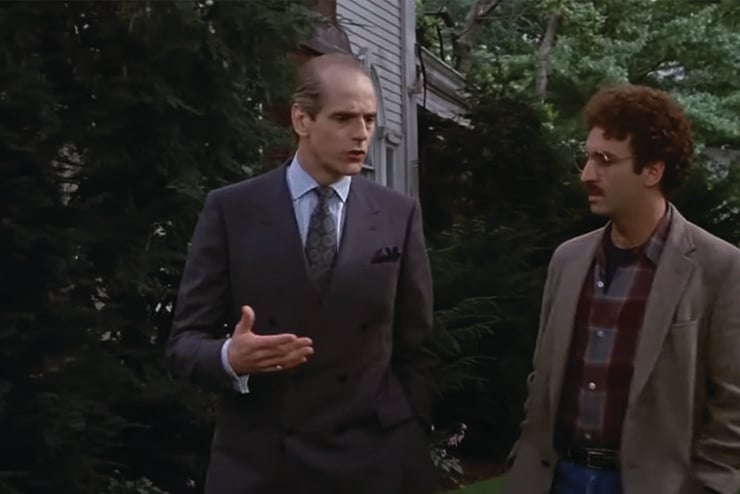I cannot exactly remember when the lunch took place, but it must have been around 20 years ago. It was at my club, Brooks’s, on St James’s in London.
Brooks’s is an old and famous gentlemen’s club, its notoriety stemming from the late nights of gambling there by Prince George (later George IV) and other swells. The prince’s Catholic mistress/secret wife, Maria Fitzherbert, would occasionally raid the proceedings, driving the gamblers out of the club and across the street to White’s. I became a member in 1971, put up by a close friend, John Bingham, the 7th Earl of Lucan. I gave many fun parties there, as the place has one of the best common rooms and art collections of any club in London.
I was back at Brooks’s late last year for a book party (I had written the forward) when a very old club waiter approached me and reminded me of a lunch he had served me and a guest named Julian Fellowes.
Fellowes is the chap who wrote the TV series Downton Abbey and later The Gilded Age. He’s been ennobled since then and is now Lord Fellowes. Back then he was unknown and rather insignificant-looking. He was seated on my left and, after saying hello, introduced himself as the husband of “the lady-in-waiting to Princess Michael of Kent.”
“Poor you. Have you tried to kill her and failed?” I asked.
“Heavens no, how can you ask me such a thing?”
“If you haven’t, why are you here at this lunch?”
I know, I know! This sounds very confusing, so let me explain: For starters, Princess Michael of Kent, whom this chap had name-dropped, is among the lowest of the low of London society. She’s an Austrian of dubious antecedents who married a cousin of the Queen of England, and is a woman who treats her servants and inferiors terribly while genuflecting to those with money and power. So, name-dropping her had already turned me against Fellowes, especially as my wife—born an Austrian Serene Highness—has never used her title to pull rank on anyone. Thus I devised the lunch-for-those-who-have-attempted-to-kill-their-wives motif.
The idea came to me because hosting this particular luncheon was the lawyer Claus von Bülow, who had been convicted of attempting to murder his wife, Sunny, who was found comatose at their Rhode Island mansion. Sunny was a rich American heiress and ex-wife of an impoverished Austrian prince. Claus’s two Austrian stepchildren accused him of injecting their mother with insulin. I had taken Claus’s side, having known him since I was a child and believing him incapable of anything of the sort. He was judged innocent on appeal and had moved back to London.
The man who had proposed me for Brooks’s, John Bingham, the Earl of Lucan, had his own marriage problems. He had gained the ironic nickname Lucky Lucan for his terrible luck at the gambling tables. Lucky was a direct descendant of the Lord Lucan, from the infamous Charge of the Light Brigade during the Crimean War. In a disastrous game of Chinese whispers, Lord Lucan had received wrong orders from an overwrought Captain Nolan, who a foolish General Raglan had given written orders to attack a particular hill in Balaclava. Lucan ordered his detested brother-in-law, Lord Cardigan, to attack immediately, repeating the wrong orders given to him by Captain Nolan.
We all know the rest. Of the gallant 600 who charged the Russian guns, around 160 were killed and 175 wounded. Cardigan survived and blamed Lucan for the disaster; thus one more innocent bit the dust.
Lucky was one of my closest English friends, a terrific mad gambler and sailor who eventually lost his money—and his mind. In November 1974 he attempted to murder his wife, Veronica, but killed the innocent nanny instead.
It was a terrible mess, and it made headlines for months on end. The Lucans had three children, and Lucky was convinced Veronica would one day harm the children because of her depression. He told me he planned to kidnap them for safekeeping. I believed him and lent him a large sum of money. Instead, Lucky got very drunk and, thinking that it was the nanny’s night off, saw a figure walking around in a darkened room and hit her over the head with a rod, killing her.
Veronica escaped and called the fuzz. Lucky disappeared and his fate is a mystery, though I believe he drowned himself later that night on the ferry to Calais, something an experienced sailor such as he would have known how to do. The BBC is doing a documentary on the case’s 50th anniversary and has been in touch, as I’m probably Lord Lucan’s last living friend.
Fellowes gets on my nerves because his wealthy male characters are all terrible people, whereas his working-class ones are shining examples of rectitude and knowledge. We’re not all wife-killers, after all! ◆

Leave a Reply